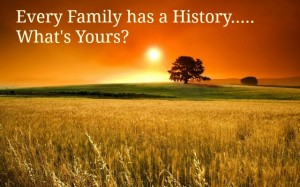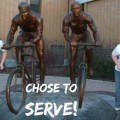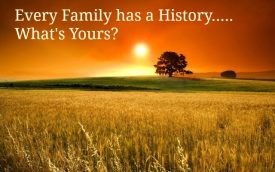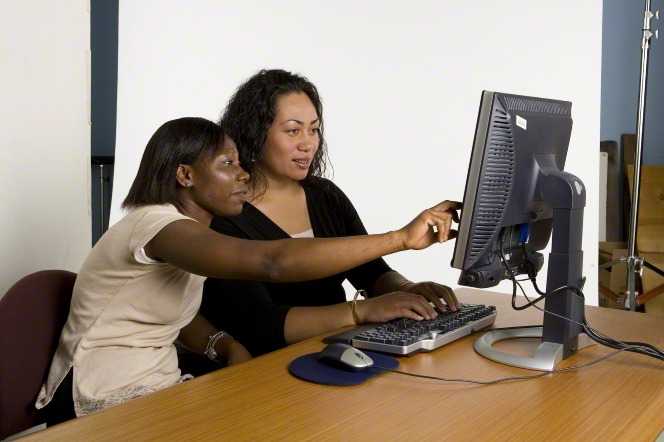The appeal of stories and storytelling is universal. In some cultures, stories preserved history before there was a written history. Through stories we can travel to times and places that we couldn’t otherwise. Stories teach important truths in a way that helps the hearer better understand and retain what is being taught. They make us laugh and they make us cry. They entertain and pull at our heartstrings. By hearing another person’s experience, we may avoid making the same mistakes. All stories are powerful but the power of the story increases with our degree of connection with the storyteller or the subject of the story. For me, the most powerful stories are those about my ancestors. History as I learned it in school takes on new meaning as I can place one of my ancestors in a certain time or place. The US Civil War was a tragic time in our country’s history with so many bloody battles that I lose track of them while listening to someone discuss them. However, I can recount the details of The Battle of the Wilderness since learning that one of my great-great-grandfathers, Harmon Henry Miller fought in that battle. The findings of a recent psychological study suggest that teenagers who know their family history have a higher level of emotional well-being. Details of this study are included later in this article.
One of my favorite storytellers, Thomas S Monson, shared this story about himself to illustrate the danger of disobedience. 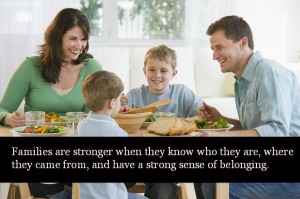
When I was growing up, each summer from early July until early September, my family stayed at our cabin at Vivian Park in Provo Canyon in Utah.
One of my best friends during those carefree days in the canyon was Danny Larsen, whose family also owned a cabin at Vivian Park. Each day he and I roamed this boy’s paradise, fishing in the stream and the river, collecting rocks and other treasures, hiking, climbing, and simply enjoying each minute of each hour of each day.
One morning Danny and I decided we wanted to have a campfire that evening with all our canyon friends. We just needed to clear an area in a nearby field where we could all gather. The June grass which covered the field had become dry and prickly, making the field unsuitable for our purposes. We began to pull at the tall grass, planning to clear a large, circular area. We tugged and yanked with all our might, but all we could get were small handfuls of the stubborn weeds. We knew this task would take the entire day, and already our energy and enthusiasm were waning.
And then what I thought was the perfect solution came into my eight-year-old mind. I said to Danny, “All we need is to set these weeds on fire. We’ll just burn a circle in the weeds!” He readily agreed, and I ran to our cabin to get a few matches.
Lest any of you think that at the tender age of eight we were permitted to use matches, I want to make it clear that both Danny and I were forbidden to use them without adult supervision. Both of us had been warned repeatedly of the dangers of fire. However, I knew where my family kept the matches, and we needed to clear that field. Without so much as a second thought, I ran to our cabin and grabbed a few matchsticks, making certain no one was watching. I hid them quickly in one of my pockets.
Back to Danny I ran, excited that in my pocket I had the solution to our problem. I recall thinking that the fire would burn only as far as we wanted and then would somehow magically extinguish itself.
I struck a match on a rock and set the parched June grass ablaze. It ignited as though it had been drenched in gasoline. At first Danny and I were thrilled as we watched the weeds disappear, but it soon became apparent that the fire was not about to go out on its own. We panicked as we realized there was nothing we could do to stop it. The menacing flames began to follow the wild grass up the mountainside, endangering the pine trees and everything else in their path.
Finally we had no option but to run for help. Soon all available men and women at Vivian Park were dashing back and forth with wet burlap bags, beating at the flames in an attempt to extinguish them. After several hours the last remaining embers were smothered. The ages-old pine trees had been saved, as were the homes the flames would eventually have reached.
Danny and I learned several difficult but important lessons that day—not the least of which was the importance of obedience. (From Obedience Brings Blessings, President Thomas S Monson, April 2012, https://www.lds.org/general-conference/2013/04/obedience-brings-blessings?lang=eng )
Stories about my ancestors are especially meaningful for me. I unfortunately don’t have much that my ancestors wrote about themselves or family members. I do have a brief life history written by a great-grand uncle, Hugh Nephi Snively. He was the son of Eleanor Stevenson Snively, my great-great grandmother. The following passage is what he wrote about Eleanor’s death.
Nothing of special note transpired until the next fall, when my mother was stricken with a complicated disease and passed away from this earth life, October 7, 1868. One thing she said to me as I stood by her bedside just before she passed away, which I hope I shall always remember. She looked up into my face and said, “Nephi, be faithful. Blessed Jesus.” Then she closed her eyes in death. This admonition I have tried to fulfill, and hope I ever shall. I have thought that if I am as well prepared for the change when it comes to me as I believe she was, I shall be satisfied.
Eleanor Snively bore 14 children including several that died in infancy. One daughter, Sarah was born in June of 1838 and died in May of 1839. A document that I discovered recently sheds more light on Eleanor’s family situation at the time of Sarah’s birth. The document is a petition for redress for loss of property during the Missouri-Mormon war made by a group of petitioners which included Eleanor’s husband, Hugh Snively. For those not familiar with the Missouri-Mormon war, here is a brief history. Members of The Church of Jesus Christ of Latter-day Saints or Mormons began gathering in the late 1830’s in Jackson County, Missouri, seeking a place where they could live the restored gospel of Jesus Christ. The cohesive group rapidly grew in numbers concerning the old settlers. The Mormons were also abolitionists, and Missouri was in the midst of deciding whether to be a free or a slave state. Contention between the Mormons and the old settlers reached the point that the governor decided that, for the good of the state, the Mormons must be driven out. The governor’s action is known as the extermination order, because if the Mormons wouldn’t be driven out, they could be shot on sight! Mormons fleeing from Missouri sought refuge in Illinois and were welcomed by the good people in and around Quincy, Illinois. So Sarah Snively was likely born in or near Jackson County, Missouri, and likely died near Quincy, Illinois. A tragic event like this often weakens a person’s testimony of Jesus Christ, but Eleanor died admonishing her son to be faithful. I hope I am developing that kind of enduring faith!
A recent psychological study conducted by researchers from Emory University, “Do You Know…”
The power of family history in adolescent identity and well-being used a list of questions, the” Do You Know Scale.” The study found that teenagers who report knowing more about family history stories show a higher level of emotional well-being. http://www.journaloffamilylife.org/doyouknow.html
The Do You Know Scale
Please answer the following questions by circling “Y” for “yes” or “N” for “no.” Even if you know the information we are asking about, you don’t need to write it down. We just wish to know if you know the information.
1. Do you know how your parents met? Y N
2. Do you know where your mother grew up? Y N
3. Do you know where your father grew up? Y N
4. Do you know where some of your grandparents grew up? Y N
5. Do you know where some of your grandparents met? Y N
6. Do you know where your parents were married? Y N
7. Do you know what went on when you were being born? Y N
8. Do you know the source of your name? Y N
9. Do you know some things about what happened when your brothers or sisters were being born? Y N
10. Do you know which person in your family you look most like? Y N
11. Do you know which person in the family you act most like? Y N
12. Do you know some of the illnesses and injuries that your parents experienced when they were younger? Y N
13. Do you know some of the lessons that your parents learned from good or bad experiences? Y N
14. Do you know some things that happened to your mom or dad when they were in school? Y N
15. Do you know the national background of your family (such as English, German, Russian, etc.)? Y N
16. Do you know some of the jobs that your parents had when they were young? Y N
17. Do you know some awards that your parents received when they were young? Y N
18. Do you know the names of the schools that your mom went to? Y N
19. Do you know the names of the schools that your dad went to? Y N
20. Do you know about a relative whose face “froze” in a grumpy position because he or she did not smile enough? Y NScore: Total number answered Y.
Important Note: About that last question! Fifteen percent of our sample actually answered “Yes!” This is because the stories that families tell are not always “true.” More often than not they are told in order to teach a lesson or help with a physical or emotional hurt. As such, they may be modified as needed. The accuracy of the stories is not really critical. In fact, there are often disagreements among family members about what really happened! These disagreements then become part of the family narrative. Not to worry!
http://www.huffingtonpost.com/marshall-p-duke/the-stories-that-bind-us-_b_2918975.html
The researchers involved in this study explained that these were only sample questions concerning what children might know about their families. The questions asked about events that children could not have first-hand knowledge about and thus would depend on family communication to know the answers. Children knowing these things demonstrates the strength of the child’s family communication. Marshal P Duke, one of the researchers, in commenting on the study results shared his feelings that it might be the strength of family communications that strengthens children rather how much they know about their family history. I respect Marshall P Duke for doing what good researchers do which is to look at all things a study results might mean. However, I feel that a person who knows their family history has a sense of belonging to something bigger than themselves. A feeling of belonging creates a sense of security, identity and well-being.
So, how do we effectively communicate our family history and family values to our children? First, don’t think you need to know a great deal about your family history. Note that the “Do You Know” questions asked about parents and grandparents. So share what you know. Share the faith promoting stories and the funny ones too. Tell that silly story about your cousin who bleached her hair and then had it turn green when she went swimming! And be sure to listen as well so that your children can share too. Second, it can be combined with something you are hopefully already doing: sharing meals together. Meals eaten together feed both the body and the spirit as we draw closer together by sharing not only food but thoughts, feelings and ideas. Notice, I said meals, not dinners because family situations vary. One family might be able to gather for breakfast or lunch on a more regular basis than they can gather for dinner. The goal is eat together at least 5 or 6 times a week. The father of one young family I know travels a lot on a seasonal basis. During his travel season, he and his family make the most of the long weekends they have together while they look forward to the months when they can be together daily. If you are thinking to yourself that you are just too busy for consistent family meals together, may I gently suggest that perhaps you are just too busy? I know from personal experience that is very easy to try to do so many good things that the best things can be crowded out. The following are the words of a wise man:
Our second key relationship is with our families. Since “no other success can compensate for failure” here, we must place high priority on our families. We build deep and loving family relationships by doing simple things together, like family dinner and family home evening and by just having fun together. In family relationships love is really spelled t-i-m-e, time. Taking time for each other is the key for harmony at home. We talk with, rather than about, each other. We learn from each other, and we appreciate our differences as well as our commonalities. We establish a divine bond with each other as we approach God together through family prayer, gospel study, and Sunday worship.
From “Of Things that Matter Most”, Dieter F Uchtdorf. October 2010 https://www.lds.org/general-conference/2010/10/of-things-that-matter-most?lang=eng
If gathering your family together is a goal that you struggle with and wish you could do more successfully, there is a reality TV show that I recommend. If you are not a fan of reality TV, I assure you this one is wholesome and uplifting. The show is called The Food Nanny and stars Liz Edmunds. Episodes can be viewed for free at this website:
http://www.byutv.org/show/4f383f98-6b31-4661-a832-e73a27a4d6ab/the-food-nanny Liz Edmunds works with real families that have asked for her help in having more successful family mealtimes. She has worked with a variety of families including a houseful of college students who felt they would benefit from sharing meals together. Liz encourages family members to prepare the food together as well as eating together to increase the bonding experience.
If you are thinking at this point that I have wandered from the subject of the importance of family history stories, please allow me to share my definition of family history. Family history is life. It is not just what took place decades or centuries ago but also the experiences we are sharing with our families right now. I will end this article with a question. What are you doing to create a family memory today?
About Christine Bell
Christine Bell has been seeking her ancestor for almost forty years and continues to find joy in each one she finds. She volunteers in a Family Search Family History Center where she helps others find their ancestors. As a convert to The Church of Jesus Christ of Latter-Saints, she is grateful to be a member of the Church. She is a wife, mother of six grown children, grandmother of five going on six, and currently living in the western United States. Christine enjoys spending time with family and creating quilts for family, friends and Humanitarian Services of The Church of Jesus Christ of Latter-day Saints.


